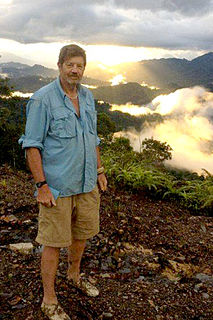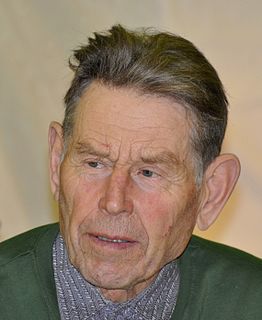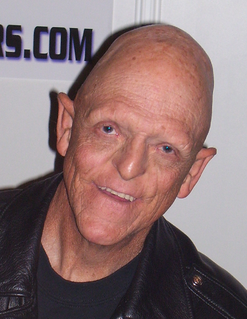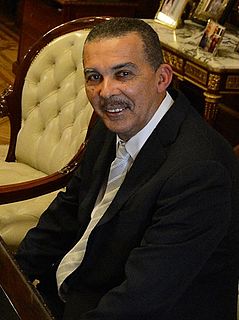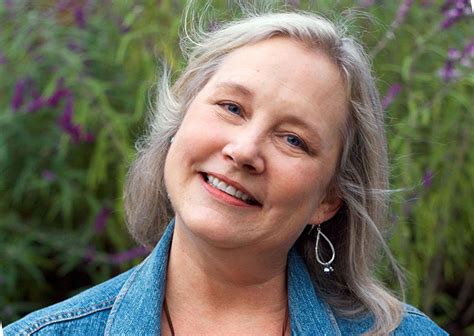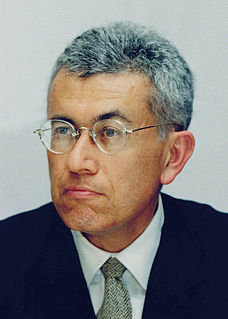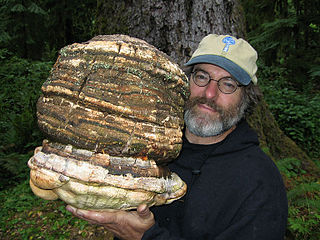A Quote by Alex Shoumatoff
The Awa are a distinctive-looking, diminutive forest people, smaller than any of the dozen other Amazon tribespeople I have met. Reduced size is adaptive in a rain forest. You can move around more easily and unobtrusively. Not only humans but other species are smaller in rain forests.
Related Quotes
Virtually, Finnish woods are stripped so bare, so sold out and first and foremost, so long way off from genuine diverse natural forest, that the resources of language will not permit excessive words. Finnish forest economy has been compared to the ravaging of rain forests. Nevertheless, the noteworthy difference is that there is a half or two thirds left from rain forests, but from Finnish forests there is left - excluding arctic Lapland - 0,6 per cent.
One of the reasons why I say we all need to work together to save the Congo forest, because if we don't save the Congo forest, the Amazon forest and the southeast Asia forest, if those forests release the carbon they are trapping at the moment, much of what you will be doing in the North will be negated by the amount of carbon released into the atmosphere.
All forests have their own personality. I don't just mean the obvious differences, like how an English woodland is different from a Central American rain forest, or comparing tracts of West Coast redwoods to the saguaro forests of the American Southwest... they each have their own gossip, their own sound, their own rustling whispers and smells. A voice speaks up when you enter their acres that can't be mistaken for one you'd hear anyplace else, a voice true to those particular tress, individual rather than of their species.
There is something demoralizing about watching two people get more and more crazy about each other, especially when you are the only extra person in the room. It's like watching Paris from an express caboose heading in the opposite direction--every second the city gets smaller and smaller, only you feel it's really you getting smaller and smaller and lonelier and lonelier, rushing away from all those lights and excitement at about a million miles an hour.
Even as global warming increases the frequency of El Nino and the Atlantic event, their effects are being amplified by the annual loss of an area of rain forest the size of New Jersey. Less rain falls, and the water runs into the rivers instead of being sucked up by the fungus filaments and tree roots.
Food production has affected the environment more than any other activity humans have engaged in. Humanity devotes more land to food production than anything else - roughly a third of the surface area of the earth, much of which was once forest but has been converted by humans into farms or grazing lands.
Without design thinking, the only sane response to a problem is to make a smaller, "safer" move. Smaller moves don't get you very far. They key is to let out the leash on imagination, but not take it off the leash. Imagination is the only path to innovation. It's a good example of something that humans do better than machines.
And what does the rain say at night in a small town, what does the rain have to say? Who walks beneath dripping melancholy branches listening to the rain? Who is there in the rain’s million-needled blurring splash, listening to the grave music of the rain at night, September rain, September rain, so dark and soft? Who is there listening to steady level roaring rain all around, brooding and listening and waiting, in the rain-washed, rain-twinkled dark of night?
We have a very old conservation movement, particularly in the United States, which has focused on campaigns to protect endangered species: the spotted owl, the old-growth forest. But usually it stops there. To me, biodiversity is the full spectrum. Species conservation is not only about wilderness conservation. It?s also about protecting the livelihood of people even while changing the dominant relationship that humans have had with other species. In India, it?s an economic issue, not just an ecological one.
